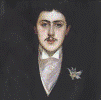Modern Languages and Literatures, Department of

French Language and Literature Papers
Document Type
Article
Date of this Version
October 1985
Abstract
Le Taureau blanc (1774) offers remarkable insight into Voltaire's use of the conte as persuasive discourse for two reasons. First, as the purest example of the genre among his last contes, it is in many ways the quintessence of his talents as a conteur. This tale does not cover any new ideological territory in its treatment of the Old Testament, a preoccupation found in much of his production of the Ferney period; nor does it introduce any technical innovations. But unlike Voltaire's last tragedies, where his reworking of the themes and dramatic conventions of his dramatic successes of the 1730s and 1740s gives the impression of self-parody, his handling of fantasy, irony, and philosophic commentary in Le Taureau blanc remains fresh. Study of this conte, which has been neglected more because its subject excites little passion today than for any flaws, can help us isolate key components of the conte philosophique in a way more problematic contes like Candide or more experimental ones like L'Ingénu cannot. Second, Le Taureau blanc contains some of the most explicit commentary on persuasive discourse to be found in the corpus of his imaginative works. Moreover, the rhetorical situation of the characters within the tale offers certain parallels to Voltaire's own situation as a persuader. An examination of the various modes of persuasive speech, especially narrative and eloquence, within what might be called his méta-conte, will afford a better understanding of why narrative proved a more effective weapon on behalf of enlightenment in Voltaire's hands than eloquence.


Comments
Published in Studies in Eighteenth-Century Culture, volume 15 (1985), edited by John Conway, pp. 47-65. Published by the American Society for Eighteenth- Century Studies.